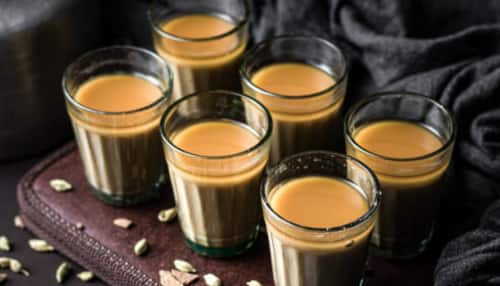- News>
- Culture
International Tea Day 2023: Is The Date May 21 Or December 15? History, Significance, Facts And Tea Traditions From Across India

The taste of any snack, whether it be some butter biscuits or just fried samosa, can always be enhanced by a cup of tea. Here`s more about the date of International Tea Day, history, significance and celebration of chai day.
Highlights
- International Tea Day is celebrated annually on May 21
- After water, tea is the second most popular beverage drunk worldwide
- This day emphasizes on the role that the tea sector plays in reducing extreme poverty, battling hunger, and preserving the environment and livelihoods
Tea Day: For all tea enthusiasts, it is now time to get ready as the day to honour our favourite drink has come. It's International Tea Day. The purpose of the day is to raise awareness of the health benefits of the beverage. The day is observed annually on May 21 per a resolution made by the UN General Assembly.
International Tea Day "will promote and foster collective actions to implement activities in favour of the sustainable production and consumption of tea and raise awareness of its importance in combating hunger and poverty," according to the official UN website.
International Tea Day is an occasion to reflect on the significance of tea as a global phenomenon, enjoy and share the experience of tea with others, and promote sustainable practices in the tea industry. It also serves as a platform to highlight the significance of tea in our daily lives.
International Tea Day: Date
The first-ever International Tea Day was celebrated in New Delhi, the capital of India, in 2005. Other tea-growing nations including Sri Lanka, Nepal, Vietnam, Indonesia, Bangladesh, Kenya, Malawi, Malaysia, Uganda, and Tanzania eventually joined in the celebrations. Ten years later, the FAO Intergovernmental Group on Tea, which spearheads international initiatives to boost the global tea sector and was crucial in the declaration of the International Tea Day, received a proposal from the Indian government in 2015 to broaden the commemoration of the holiday.
Regarding the exact date of International Tea Day, there is considerable confusion. Although the United Nations General Assembly declared December 15 as International Tea Day, it is important to note that May 21 had already been designated as International Tea Day.
The goal of the United Nations-designated International Tea Day on December 15 is to honour the global cultural and economic significance of tea while highlighting its influence on livelihoods and sustainability. This celebration aims to raise awareness about the value of tea as well as promote sustainable tea production and fair trade practices.
While the May 21st International Tea Day has its roots in the tea-producing nations of the World Tea Conference, which proposed the date to commemorate the signing of the First International Tea Agreement in 2005, and this observance focuses on promoting tea production, consumption, and cultural aspects.
Also Read: International Tea Day 2023: 10 Types Of Tea That Burn Belly Fat
International Tea Day: Significance
The day is meant to promote trade, use, and production of tea in sustainable ways. It provides a forum for decision-makers at the international, regional, and national levels to emphasise the role that the tea sector plays in reducing extreme poverty, battling hunger, and preserving the environment and livelihoods.
International Tea Day: Interesting Facts About Tea
- Smallholder farmers make up around 9 million of the tea growers in major producing nations including China, India, Kenya, and Sri Lanka.
- After water, tea is the second most popular beverage drunk worldwide.
- Tea per capita income has grown by 2.2% yearly over the last ten years.
- The amount of tea produced globally in 2020 was 6.5 million tonnes.
- To support the world tea economy, the FAO Intergovernmental Group on Tea conducts cooperative activities.
International Tea Day: Tea Traditions Across India
Irani Chai
This tea, which also contains flavorful spices in addition to the energising tea leaves, is preferred by residents of Pune and Hyderabad. In Mumbai's Irani hotels, it is typically served with a bun maska or a maska pav.
Bengal’s Labu Cha
Labu Cha, a beverage popular in West Bengal, is essentially black tea that is made by brewing tea leaves rather than tea dust. It is a beverage that has been spiced up with ginger powder, black salt, and a dash of lemon. For many Bengalis who gather at nukkad chai locations to chat and drink some sizzling hot Labu Cha, it is the ideal companion.
Mangalorean Kasai
This unusual tea is herbal and offers a lot of health advantages. This dish, called "kadha" in Mangalore, contains jeera, coriander, fennel seeds, and fenugreek. These dry-roasted spices are cooked in water and then sugar or misri is added for sweetness.
Kashmiri Noon Chai
This particular type of Kashmiri tea from the north has a hint of pink to it. It is regarded as genuine Kashmiri chai and is made by steeping green tea leaves with cinnamon, cardamom, and other spices, as well as nuts like pistachio and almond. The chai is further given a dash of salt.
Gujarati Ukado
Gujarati herbal tea known as ukado is used as a natural cure for common ailments. Ingredients like honey, lemon, ginger, and mint provide flavour to the drink while boosting immunity.
